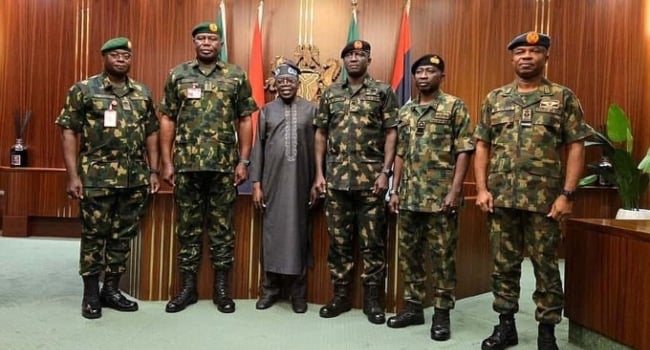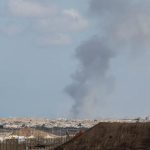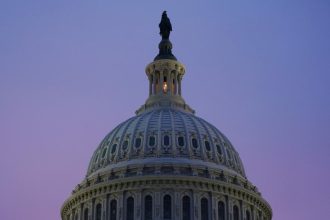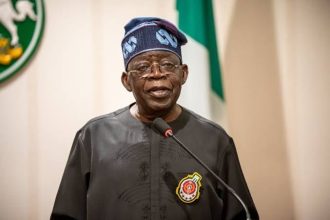Nigeria’s newly appointed service chiefs on Wednesday assured a screening committee of the House of Representatives that they will prioritise strengthening the country’s security architecture, improving personnel welfare, and deepening collaboration with lawmakers and other stakeholders to restore peace and stability across the country.
Appearing before members of the House Committees on Defence, Army, Navy and Air Force, Chief of Defence Staff, Lieutenant‑General Olufemi Oluyede said his years of senior military experience have prepared him for the task ahead.
“My exposure to national security issues and the responsibilities of senior military leadership has prepared me for this assignment.
“I will work to bring positive change to our military economy and optimise our operational design and tactics. This is a period for unity, strong bilateral and multilateral partnerships, and fairness across all services,” he said.
Oluyede stated that he would place a premium on the welfare of service personnel and their families, and pledged to collaborate with the legislature’s security committees to secure the necessary resources to sustain operations and enhance living standards for troops.
“I intend to prioritise the welfare and well‑being of our men and women in uniform and their families. I will engage with the Defence, Army, Navy and Air Force Committees and other stakeholders to ensure troops get what is due to them,” he assured all.
Army, Navy, Air Force chiefs outline priorities
The Chief of Army Staff, Major General Waidi Shuaibu, outlined plans to inject fresh energy into operations and to intensify special‑forces training to boost strike capability in both day and night operations.
Shuaibu, who holds degrees in engineering and multiple master’s qualifications in strategic and security studies, referenced his operational experience across the country and said he remained committed to building on the legacy of his predecessor.
“Under my command, we were able to rescue 15 Chibok girls from terrorist enclaves and neutralise a number of terrorist commanders.
“I am determined to bring renewed rigour into our training and ensure our troops are prepared for the roles ahead,” Shuaibu said.
The Chief of Naval Staff, Rear Admiral Idi Abas, highlighted his background as an over‑water warfare specialist and a former operations and training commander.
He promised to reposition the Navy for greater operational effectiveness by leveraging his instructional and command experience.
“With the appointments and experiences I have had, I understand what it takes to move the Navy forward,” Abas told the committee.
The Chief of Air Staff, Air Vice‑Marshal Kennedy Aneke, said leadership, innovation and strategic planning would guide his tenure.
He emphasised mission focus, staff development, discipline and long‑term planning as central to improving Air Force capability.
“Our goal is to advance innovation and strengthen planning and leadership across the Service,” Aneke said.
Opening the session, the Committee Chairman and Lagos lawmaker, Babajimi Benson, described the screening as a core constitutional duty of the National Assembly under the 1999 Constitution (as amended), intended to ensure transparency and public confidence in military leadership.
“This process is not merely ceremonial. It is a critical mechanism for ensuring accountability, transparency and public confidence in our national security institutions,” the chairman said.
He urged the nominees to demonstrate professional competence, integrity, and clear strategic plans to tackle evolving threats such as terrorism, banditry, and cyber and maritime insecurity.
“To our nominees: approach this engagement with openness and clarity. Present practical ideas that will contribute to national peace and stability,” he added, assuring the officers that the committee would be “fair, thorough and objective” in its deliberations.
The committee is expected to report back to the House in plenary on Thursday.









